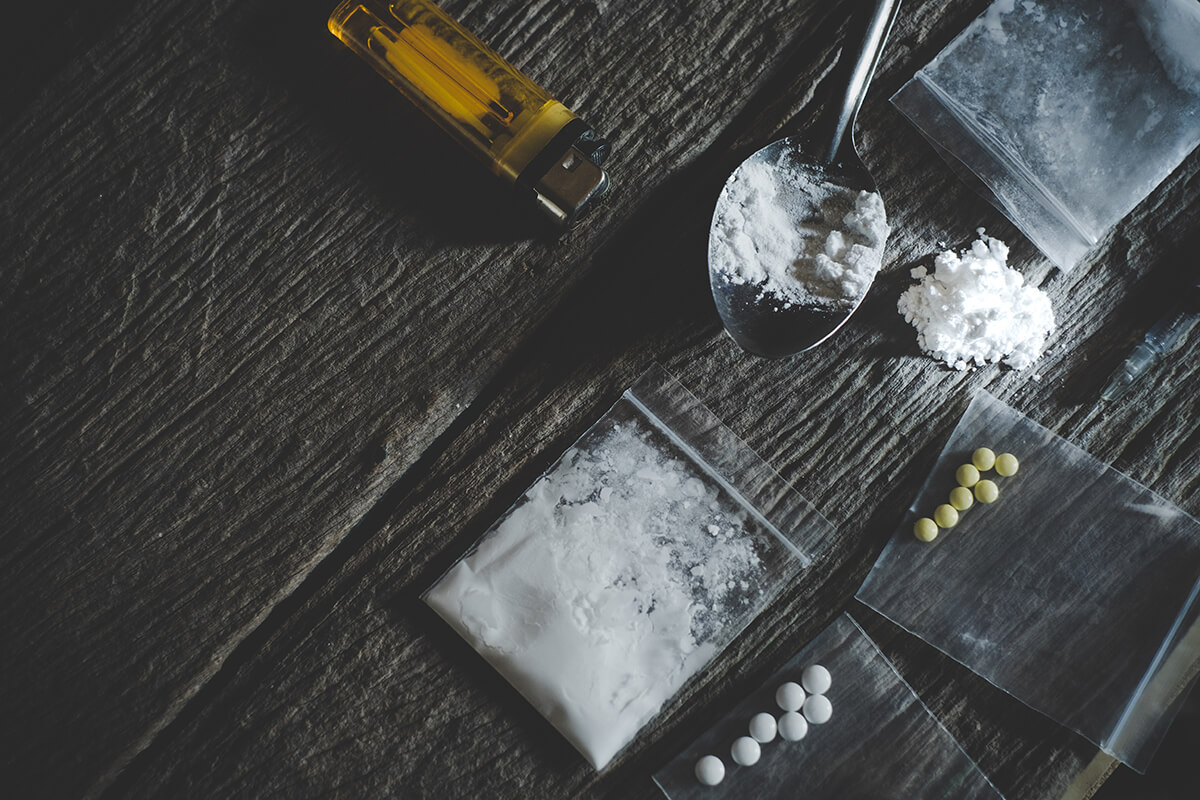
Although prescription medications are legal because they provide important medical and therapeutic benefits, prescriptions like Xanax, OxyContin, and Vicodin are prone to abuse. Illicit drugs like heroin, MDMA, and hallucinogenics are classified by the federal government as Schedule 1 drugs, meaning that they have a high potential for abuse and limited medical applications.
Drug and alcohol abuse affects more than 40 million Americans annually. Illicit and prescription drug abuse leads to significant interpersonal problems, conflict, and instability. Despite how pervasive addiction is, 75% of those with a substance abuse disorder or drinking problem work, but addiction leads to missed work days and increased chances of workplace-related injuries. Overall, substance abuse treatment costs Americans over $100 billion annually.
The legal status of commonly abused illicit substances means that if you struggle with an addiction to drugs like heroin, you are at risk for increasingly severe legal consequences. This is why it's so important to receive substance abuse education.
So, what are Schedule 1 drugs? Drugs that provide little to no medical or mental health benefits that are prone to abuse and addiction are classified as Schedule 1 drugs under the Controlled Substance Act. The classification means it is illegal to possess, sell or manufacture Schedule 1 drugs.
Examples of schedule 1 drugs include:
Because they have no recognized medical benefit, Schedule 1 drugs can’t be legally prescribed by doctors. If you buy or sell Schedule 1 drugs, you can face severe legal consequences if you are caught and arrested.
Becoming addicted to prescription drugs or Schedule 1 drugs can cause you to face financial problems, housing instability, and relationship issues. Addiction and substance abuse problems also lead to a lower quality of life, a shorter life span, and declining health. Drugs and alcohol slowly change your brain chemistry, causing your brain to rely on drugs and alcohol to release neurotransmitters like serotonin and dopamine.
When you stop using drugs or alcohol, your brain causes you to experience intense cravings. Since drugs and alcohol are physically addictive, you can deal with uncomfortable withdrawal symptoms when you immediately stop using.
Substance abuse issues can also impair your ability to make rational decisions, problem solve and handle conflict with others. The impact addiction has on family life is profound. Addiction and substance abuse issues are a leading cause of divorce and custody issues.
Addiction is treatable, but since it is a chronic condition, recovery requires lifelong management of symptoms. Inpatient and outpatient treatment programs utilize evidence-based and holistic approaches to help you learn to identify triggers, cope with cravings and change your thoughts, feelings, and behaviors. Treatment can also provide you with substance abuse education. Proper treatment greatly improves your chances of maintaining long-term sobriety and abstinence.
Whether you struggle with an addiction to prescription medications or Schedule 1 drugs, finding help is the most important way you can begin to recover. San Antonio Recovery Center is here to help you beat addiction. Call us today at 866.957.7885 to learn more to discuss your treatment options.
contact us now!
